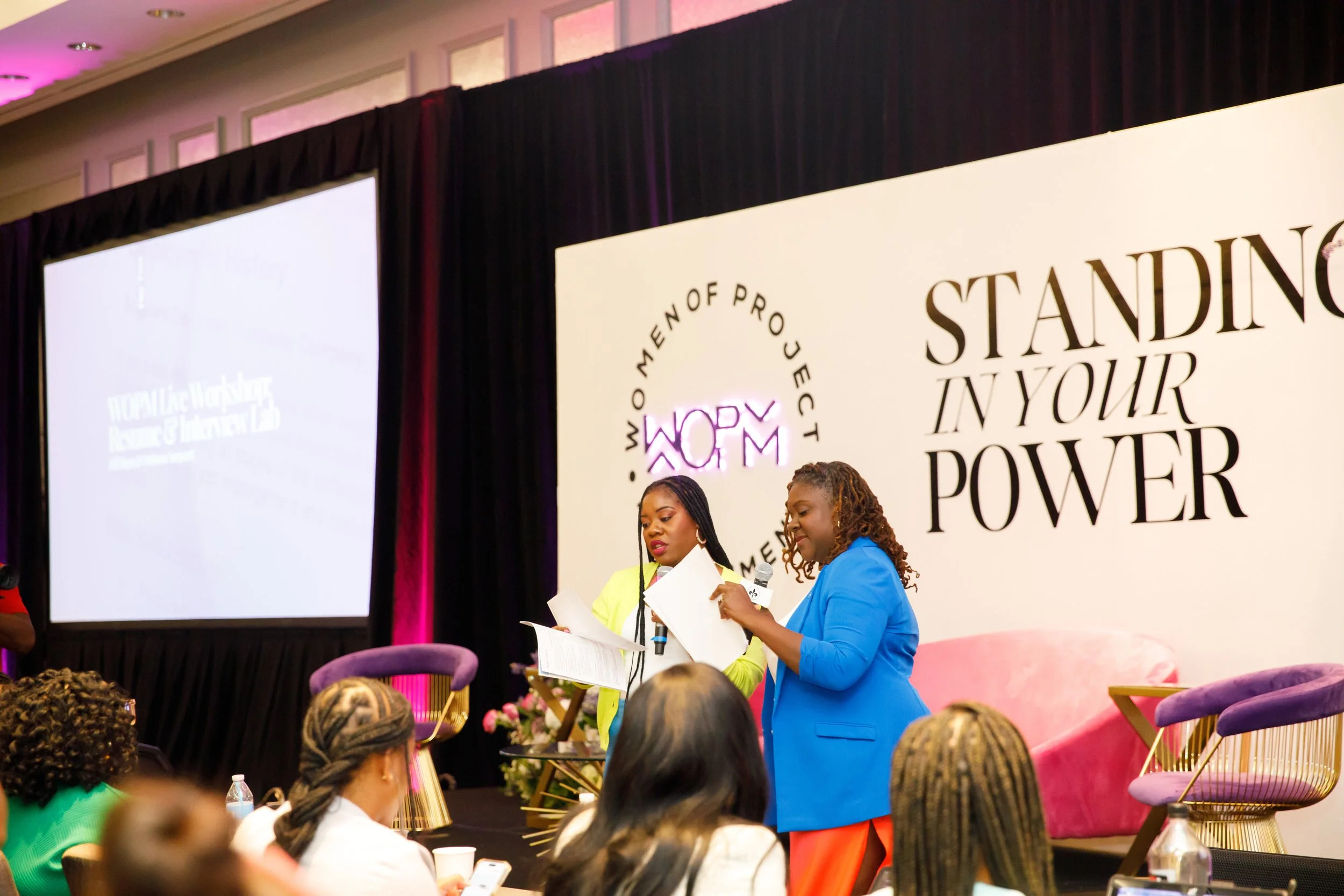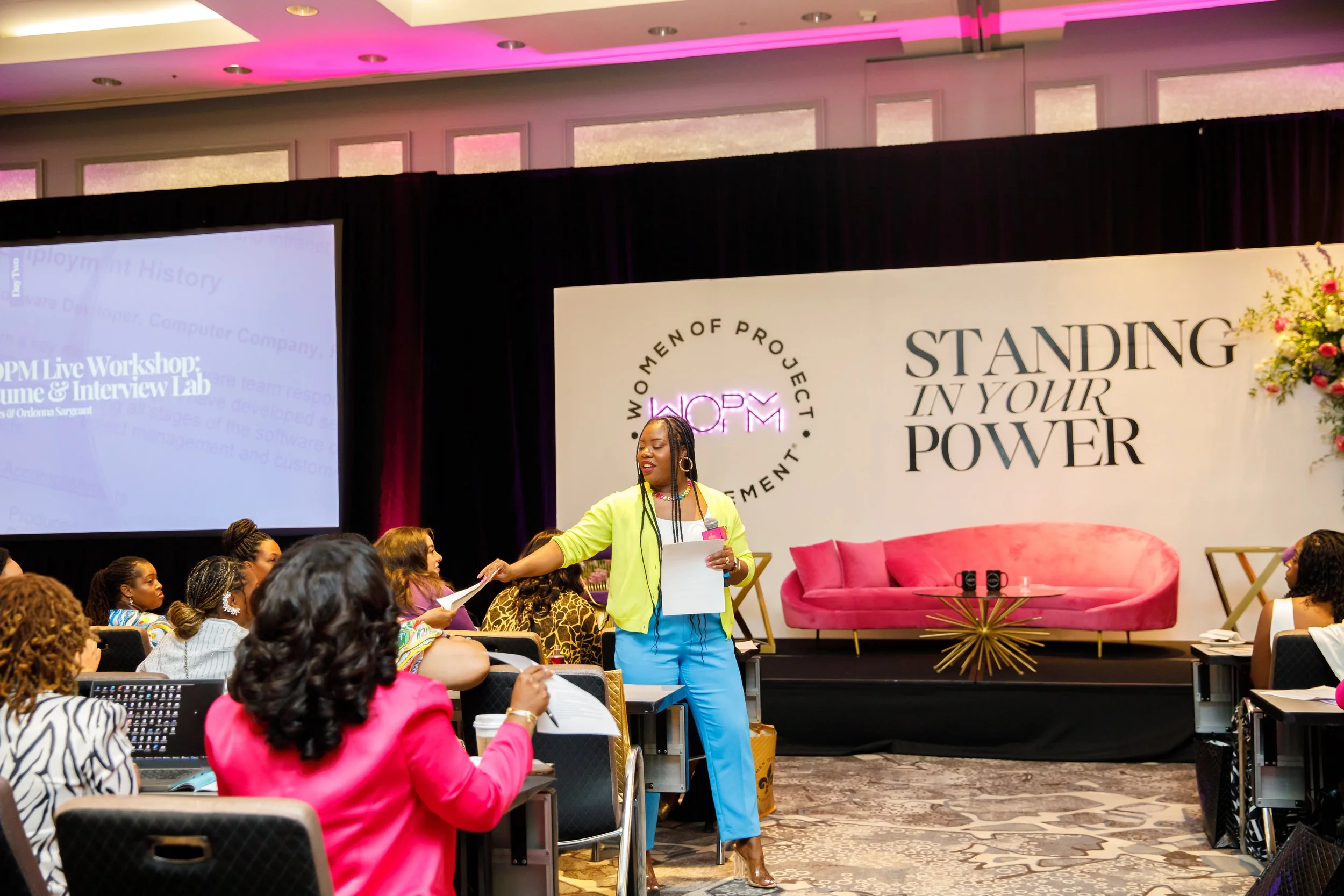10 Project Management Interview Questions and Answers
The key to nailing project management interview questions is by really digging into your experience. Forget the stuff you learned in school and in textbooks; what hiring managers really want to hear are your real-world experiences and accomplishments managing projects.
According to a 2023 survey by PMI, 92% of employers value practical experience over theoretical knowledge when hiring project managers.
However, it’s still important to have the technical knowledge, it definitely gives you an edge.
But make sure you go into a project management interview with stories about how you took a project from start to finish under budget and on time and the different techniques you used to get the job done.
These are the juicy details that'll make your interviewers lean in and want to know more.
Edi Hayes, Ordonna Sargeant
Interview Questions for Project Managers
Whether you’re pivoting into project management or leveling up in your career, this guide will help you not just show up—but show out.
Think of this as your cheat code to standing out in a sea of candidates who’ll probably give the same textbook answers. Let’s make sure that’s not you.
1. How do you prioritize tasks in a project?
Prioritizing tasks is all about knowing what’s going to make or break your project. I start by identifying the high-impact deliverables, which are basically the non-negotiables.
Then, I look at deadlines, resource availability, and potential bottlenecks. My secret weapon? A mix of common sense, the right technology and a solid communication plan.
Then go into an example of how your ability to prioritize tasks directly impacted a project’s success.
2. Can you describe a time when you had to manage a project with limited resources?
I had a few projects where the budget got cut in half midway, but we still had to deliver. So, I had to get creative with the team’s skills, reassigned roles, cut out the fluff, and leaned heavily into automation tools.
The key was constant communication with stakeholders to manage expectations. In the end, we pulled it off and it didn’t impact the success of the project.
3. How do you handle project risks?
I prefer a proactive approach. I map out potential risks during the planning phase—everything from scope creep to resource shortages. Then, I set up contingencies and make sure the team knows their role if something goes left.
I also keep stakeholders in the loop because surprises are expected but not having a plan in place to mitigate them can be detrimental to project success.
I have regular touch bases with stakeholders to review RAID logs to ensure all bases are being covered and escalation contacts are identified.
Women of Project Management
Project Management Interview Questions
4. How do you handle conflicts within your project team?
What I’ve learned working in project management is that conflict is inevitable. I start by listening objectively to all sides. Ultimately, I remind them of the project goals, which helps shift the focus from the drama to the bigger picture.
If that doesn’t work, I step in to make an executive decision. At the end of the day, I have to ensure that the project stays on track, and while I value everyone’s input, the direction we take has to serve the project’s success.
5. What project management tools do you use, and why?
I geek out over anything that simplifies my workflow, which is why Smartsheet, Loop, and JIRA are my holy trinity. Smartsheet is my go-to for its sheer versatility. It handles everything from resource management to tracking deliverables and budget like a pro.
2025 Women of Project Management Conference on Sale!! Click here to secure your seat today.
Loop is perfect for real-time collaboration, keeping everyone in sync without endless emails. And JIRA is my go to for managing developers, ensuring every sprint stays on track. These tools don’t just organize the chaos; they make managing complex projects feel almost effortless.
6. How do you ensure project deadlines are met?
Deadlines are like trust—once broken, good luck repairing them. I keep deadlines top of mind by setting mini-milestones and checking in regularly with the team. I’m also a fan of backward planning—working from the end date and mapping out every single thing that needs to happen.
This way, I spot any potential hiccups before they turn into full-blown disasters.
7. How do you manage stakeholder expectations?
Managing stakeholder expectations is like managing your own. Clear, upfront communication is key. I don’t sugarcoat things—if there’s going to be a delay or something isn’t feasible, I let them know early on, along with possible solutions.
I also set realistic goals and avoid over-promising because no one likes being disappointed. Over-communication > under-delivering.
8. How do you track project performance and success?
I love a good dashboard—it’s like a real-time report card for your project. I use KPIs that matter to the project’s success, like time, budget, and quality metrics. I use different tools to track and visualize performance, while team check-ins give me the qualitative data.
Success isn’t just about meeting deadlines—it’s also about stakeholder satisfaction and team morale. If everyone’s still smiling at the end, I’ve done my job.
9. What’s your approach to handling a project that is behind schedule?
First things first, I never panic. I immediately assess why we’re behind. Is it a resource issue? A miscalculation? Whatever it is, I pivot. I look for tasks that can be fast-tracked or rescheduled, reallocate resources, and communicate the new plan to stakeholders.
If worse comes to worst, I adjust deadlines, but only after exhausting all other options.
10. What’s your leadership style as a project manager?
I’m more of a collaborative leader—I don’t micromanage because I trust my team to know their stuff. My job is to provide clarity, support, and direction. I set the vision and make sure everyone has what they need.
I’m really big on communication, feedback, and empowering the team to make decisions.
By, Airess Rembert, PMP, Member of Women Of Project Management & Blogger at The Nerd Bae
Asya Watkins
Join.
Join the full discussion inside the Women Of Project Management Membership. Listen to part of our conversation on the Women Of Project Management Podcast.
If you're new to our community, Women Of Project Management is the only community created to support & amplify the voices of women & women of color in every specialty of the project management industry worldwide. We support women in every stage of their career, learn more at Women Of Project Management.




